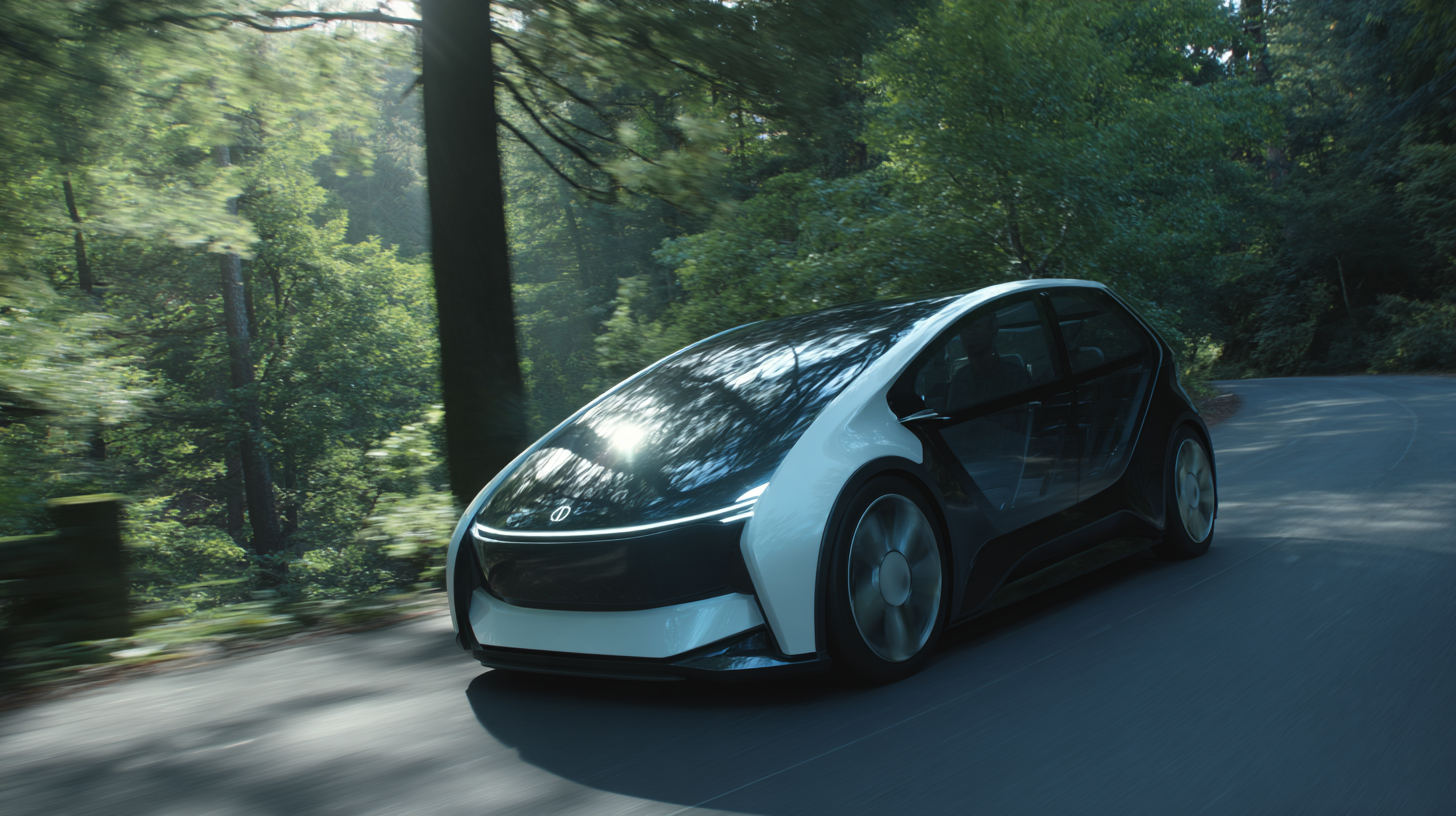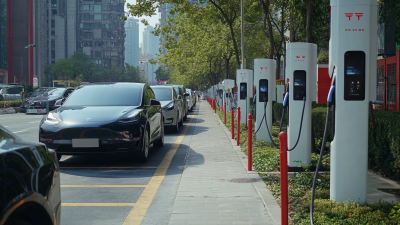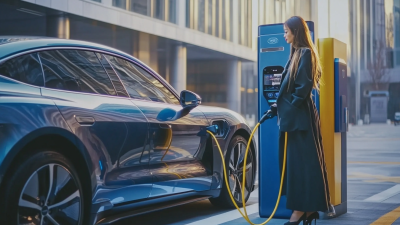Leave Your Message
The advent of electric automobiles marks a transformative shift in the automotive industry, primarily aimed at reducing global carbon emissions. As concerns about climate change intensify, the transition from traditional internal combustion engines to electric vehicles (EVs) has become a pivotal strategy for achieving sustainable transportation. With advancements in battery technology, increased charging infrastructure, and policy incentives, the rise of electric automobiles is not just a fleeting trend but a crucial step towards a greener future. This exploration delves into how electric vehicles contribute to global emissions reduction, the challenges faced in their widespread adoption, and the innovations driving their popularity.

By understanding the impact of electric automobiles, we can better appreciate their role in shaping an eco-friendly landscape and how they can lead to a substantial decrease in our carbon footprint, ultimately propelling society towards a more sustainable existence.
The rise of electric vehicles (EVs) has become a significant trend in the automotive market, with sales surging globally. In 2024, electric car sales surpassed 17 million units, marking a remarkable increase of over 25% compared to the previous year. This growth indicates a notable shift in consumer preferences and market dynamics, as more individuals opt for eco-friendly transportation solutions amidst rising environmental concerns.
Market projections suggest that the trend of increasing electric vehicle sales will continue, driven by advancements in technology and growing investment in charging infrastructure. As electric cars become more accessible and affordable, their market share is expected to expand, further contributing to global carbon emissions reduction efforts. The shift towards electric vehicles not only reflects changing consumer behavior but also highlights the automotive industry's commitment to sustainability and innovation. With the continued support of governments and industries promoting electrification, the landscape of the auto market is poised for significant transformation in the coming years.

The global shift towards electric vehicles (EVs) is gaining momentum, driven predominantly by initiatives and policies aimed at reducing carbon emissions. Governments around the world are implementing various measures to promote the adoption of electric automobiles. For instance, a report by the International Energy Agency (IEA) indicates that global EV sales reached 6.6 million in 2021, reflecting a 108% increase from the previous year. Such impressive growth is largely attributable to favorable government incentives, like tax rebates, grants, and the establishment of extensive charging infrastructure.
In addition to financial incentives, many countries have set ambitious targets to phase out internal combustion engines entirely. According to the European Commission, the EU aims to reduce greenhouse gas emissions by at least 55% by 2030, with electric vehicles playing a crucial role in this strategy. Moreover, the recent policies in countries like Norway, which plans to end the sale of new gasoline and diesel cars by 2025, serve as a significant catalyst for the electric vehicle market. These initiatives are not only contributing to lower carbon emissions but are also reshaping the automotive landscape, leading to a sustainable future.
The rise of electric vehicles (EVs) is poised to significantly alter the landscape of global carbon emissions. Current data indicate that the adoption of EVs has led to a measurable decrease in greenhouse gas emissions. For instance, studies show that electric cars produce, on average, 40-70% less CO2 over their lifetime compared to traditional gasoline vehicles, even when accounting for emissions from electricity generation. This transition is particularly impactful in regions where renewable energy sources dominate the grid, further enhancing the sustainability of EVs and contributing to overall emission reductions.
Looking ahead, the future outlook for electric vehicles suggests a promising trajectory in the fight against climate change. With advancements in battery technology and more efficient manufacturing processes, the environmental impact of EVs is expected to decrease further. Furthermore, as governments worldwide implement stricter emissions regulations and incentivize the adoption of electric vehicles, the shift towards a low-carbon transportation system will gain momentum. Projections estimate that by 2030, electric vehicles could comprise a significant share of total vehicle sales, leading to a substantial decline in carbon emissions from the transportation sector and contributing to global climate goals.

The electric vehicle (EV) revolution is powered by rapid technological innovations that have significantly enhanced the performance, efficiency, and affordability of electric automobiles. As highlighted in a recent report by the International Energy Agency (IEA), global electric car sales surged to over 6.6 million units in 2021 alone, a staggering 108% increase from the previous year. This growth trajectory is largely attributed to advancements in battery technology, including the introduction of solid-state batteries, which promise higher energy densities and faster charging times, further boosting consumer confidence in EVs.
Moreover, the integration of artificial intelligence and smart technology into electric vehicles has transformed the driving experience, making it more intuitive and user-friendly. A report from McKinsey indicates that these innovations could reduce costs for EV manufacturers by up to 25%, thereby making electric cars more accessible to the average consumer. As automakers increasingly adopt regenerative braking systems and improve aerodynamics, the efficiency of electric vehicles continues to rise, contributing significantly to a decrease in global carbon emissions. With projections estimating that by 2030, electric vehicles could account for 30% of global vehicle sales, the synergy between technology and sustainability is undeniably pivotal in the fight against climate change.
| Year | Global EV Sales (Million Units) | Estimated Carbon Emissions Reduction (Million Tonnes) | Major Technological Innovations |
|---|---|---|---|
| 2020 | 3.24 | 23.0 | Improved battery technology, Regenerative braking |
| 2021 | 6.75 | 46.1 | Faster charging technology, Enhanced motor efficiency |
| 2022 | 9.55 | 65.4 | Solid-state batteries, Advanced AI for energy management |
| 2023 | 12.80 | 90.2 | Vehicle-to-grid technology, Autonomous driving integration |
The transition to electric mobility presents both challenges and opportunities that significantly shape the future of transportation and climate change. One of the primary challenges is the current limitations in charging infrastructure. Many regions still lack sufficient charging stations, which can deter potential electric vehicle (EV) users. Additionally, the range anxiety among consumers, stemming from fears of insufficient battery life on longer journeys, remains a barrier to widespread adoption. Addressing these infrastructural shortcomings is crucial for building consumer confidence and advancing the electric mobility agenda.
On the opportunity front, advancements in battery technology and renewable energy integration have the potential to revolutionize the electric vehicle market. Improved battery efficiency and reduced costs can make EVs more accessible to a broader audience, thereby enhancing adoption rates. Furthermore, governments around the world are increasingly recognizing the urgency of reducing carbon emissions and are implementing incentives for both manufacturers and consumers. These policies not only stimulate market growth but also align with global sustainability goals. The transition to electric mobility thus holds the promise of not only transforming the automotive industry but also contributing significantly to global efforts in combating climate change.






